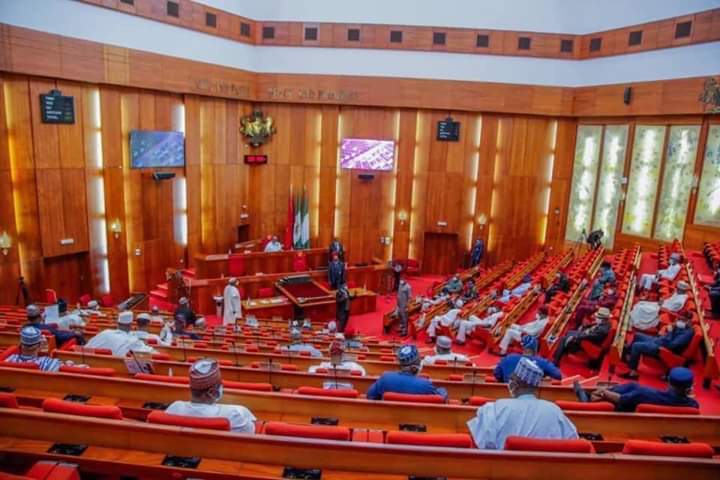Azu Ishiekwene
Kicking the can down the road is government art. Once politicians maneuver themselves into office, they govern by repeating the promises they made and hope that problems would go away. Unfortunately, it doesn’t work that way.
For six years we’ve been trying to find an electoral law that works for voters. It doesn’t appear that we’re nearer a solution today than when we first started.
At that time, President Goodluck Jonathan had one foot out the door, but his government being perhaps the most tech-savvy in Nigeria’s modern history, was quite open to changes that would accommodate greater use of technology in the electoral system.
It was under Jonathan that the biometric technology for voting was first introduced. Yet, in a weird twist of irony, the system failed when it was his turn to cast his own vote. Apart from the rising insurgency, which hastened his fall, his party henchmen would later blame him for signing up to the “tech-enabled suicide” that swept his government from power.
His successor, Muhammadu Buhari, who is supposed to be the beneficiary of the greater transparency brought on by the wider deployment of technology has been stalling for the last six years.
The voting pattern last week in the electoral amendment bill by members of the All Progressives Congress (APC)-dominated Senate is a measure of how the ruling party is afraid of the consequences of what party conservatives consider to be too much of a good thing.
Fifty-two APC senators who voted “No” to electronic transmission of election results and 28 People’s Democratic Party (PDP) members who also voted along with them said they voted to remain in the Stone Age because it is better to make haste slowly.
Let us back up a bit. After the 2015 general elections, the electoral bill was up for amendment again in 2018 – as it would be in every major election cycle in the next at least two decades.
The amendments, three years ago, were supposed to ensure the compulsory use of card readers, and create allowance for citizens and agents to record and share proceedings at a polling station; and also, provide jail terms and fines for officials found guilty of omitting logos from ballot papers.
Buhari refused to sign the bill. He argued, at the time, that signing the bill so close to the polls could confuse voters about which of the two laws – 2015 or 2018 – was valid for the election.
The National Assembly, which dangerously hung in the balance as a result of the rebellion led by former Senate President Bukola Saraki, accused Buhari of using delay tactic, while other leading opposition figures imputed sinister motives.
In the end, even though Buhari refused to sign the bill, the Independent National Electoral Commission (INEC), had modified its election manual to accommodate the changes, creating one of the most perplexing legal dilemmas all the way up to the Supreme Court in the case of Nyesom Wike v Dakuku Peterside & others.
This was the case in which contrary to the ruling of the election tribunal and the court of appeal, the Supreme Court, in an extraordinary attempt to find a common ground between convenience and pragmatism on the one hand, and rule of mischief and jurisprudence on the other, made a distinction without a difference.
The court ruled that while INEC could make delegated legislation, such rules were not superior to the primacy of the Electoral Act and the non-use of card readers could therefore not invalidate the result of an election.
It’s not clear yet what will become of the ongoing attempt to amend the electoral bill but the political and legal fireworks might be no less riveting.
Already, Senate President Ahmed Lawan has chosen to believe the delegate of the Nigerian Communications Commission (NCC), instead of INEC. He said if electronic transmission of results by INEC was permitted, 50 per cent of voters would be “disenfranchised”.
To save voters from this imaginary misery, Lawan’s Senate reached into the Constitution and from its menu list offered an electoral a la carte in which the powers to conduct elections have now been carved up among INEC, the National Assembly and the NCC, an important but subsidiary agency, inferior to INEC.
In Lawan’s world, “disenfranchisement” occurs after, not before voting. And you must wonder where and how the NCC and their cohorts in the National Assembly arrived at 50 per cent coverage of polling units.
In a report in The Guardian of November 11, 2020, the newspaper said that the NCC, “in the draft consultation document for the deployment of 5G Mobile Technology in Nigeria disclosed that as at December 2019, coverage data showed that most rural areas only have access to 89.8 per cent 2G network coverage, while 3G (which is to be deployed in elections, emphasis mine) has coverage of 74 per cent.”
This statement is repeated on NCC’s website that “the Nigerian National Broadband Plan 2020-2025 (P.33) says by September 2019, the spread of 3g/LTE had reached 74.2 per cent in Nigeria.” In preparation to deploy the 5G which NCC says is about 70 per cent ready, the Commission also said on its website that broadband coverage in May 2021 was 46 per cent.
This figure is consistent with the data by GSMA Intelligence, which put growth in 3G population coverage in sub-Saharan Africa at 70 per cent, up from 52 per cent in 2014.
So, how and when did Nigeria’s data regress from 74 per cent to 50 per cent? And how can broadband coverage reach such significant levels while 3G is lagging miserably, as the National Assembly was told?
As for voter turnout, in the last 21 years and six general election cycles, there has been only one election with 47 per cent voter turn-out – and that was the one in 2015. The average aggregate, according to Sage Journals, has been 55.13 per cent, which is consistent, even slightly better than trends elsewhere in the world.
What secures voter’s franchise is not less, but more transparency which electronic transmission of results can potentially guarantee.
Of course, the current system is steeped in the culture where the party in power, often with help from the security agencies, writes election results and, in a number of cases, go on to subvert the courts. But that’s precisely why fewer people tend to go out to vote: because they think the system is rigged. More, not less transparency is what we need.
It’s easy for Lawan and co to forget now. But the introduction and use of card readers to vet voters and the fact that citizens could use their phones to record and file proceedings in polling centres were vital to the greater level of transparency in the 2019 polls.
We also saw the benefits of electronic transmission of results during the off-cycle governorship election in Edo State in 2020 when INEC’s dedicated online portal (IRV) enabled Nigerians to view results from polling units in real time. With progress so far made, it would be difficult to follow the Senate president and his crowd back to Lawanistan, where thugs and town criers manage voting results.
His argument that the patriotic spirit of the opponents is borne out by the fact that the vote was across party line and also from different parts of the country, is disingenuous. The common thread that binds the naysayers and the convenient absentees is not patriotism; it is irrational, self-serving fear!
Since Namibia became the first African country to introduce voting machines seven years ago, many other countries have followed, despite the challenges.
There are, by some accounts, 34 countries of the world’s low- and middle-income countries, including Ghana, Mali, Kenya, Cameroon, Mozambique, Zambia, Malawi, Rwanda, Senegal and Mauritania, that use the biometric identification system.
According to IDEA Elections, an international resource centre for polls, 18 out of 51 countries in sub-Saharan Africa process election results by electronic tabulation between polling stations and the central level. Depending on the country polling station could be the Nigerian equivalent of a cluster of wards or local governments. The exceptions are Zambia and Kenya were results are transmitted electronically from polling units.
Lawan’s argument about coverage is funny. Even countries that have excellent coverage have sometimes complained about cyber security. The way to mitigate the risk is to provide contingency that accommodates hybrid of the manual and electronic system.
In some countries, after the interim results have been reported orally or electronically, the original statement of the votes is transmitted to the pre-determined office of the electoral management body by hand, to prevent fraud and maintain the chain of custody.
If we pander to the argument about coverage today, in 2050 if we have 100 per cent coverage, there’ll still be dinosaurs whose fear would have shifted from coverage to hacking.
But then, we must ask the question, how did the Buhari government manage to make conditional cash transfers to an estimated 12million people through its social investment programme, if it has such low confidence in network coverage?
How can a country where millions of children conduct computer-based tests yearly and get their results on their phones be scared of e-transmission of election results? Or how can a country where having a national identification number is tied to everything, including owning a phone line, be worried that electronic transmission of results would be its death knell?
Yet, blocking electronic transmission of results is just one of the travesties in this bill; it has also scandalously increased campaign expenses, making a mockery of the not-too-young to run law.
How do our senators want their election results at the next poll? Since the results are neither safe to go by bandit-infested roads nor sure to delivered electronically as a result of spotty coverage, senators may opt to write and publish them, as they have customarily done. That’s what they want – to be players and umpires in their own game.
Welcome to the dark ages of electoral jiggery pokery.
Ishiekwene is Editor-In-Chief of LEADERSHIP
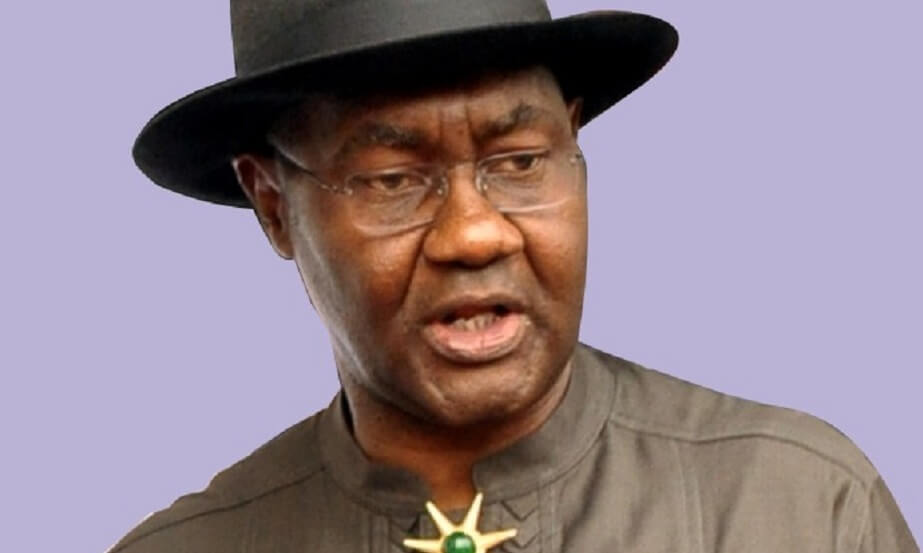
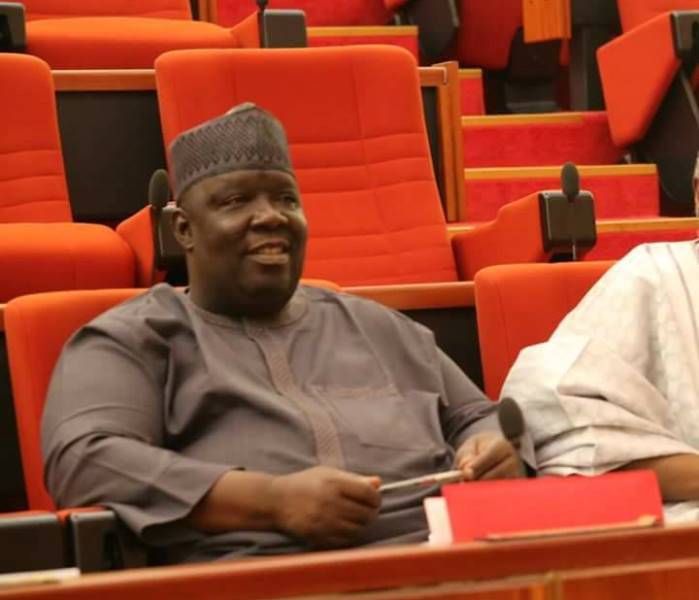


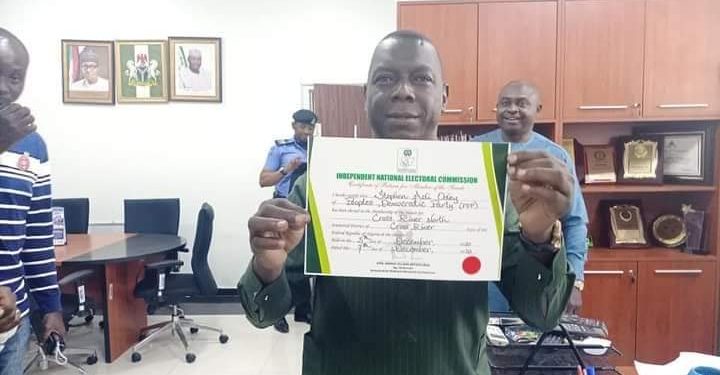
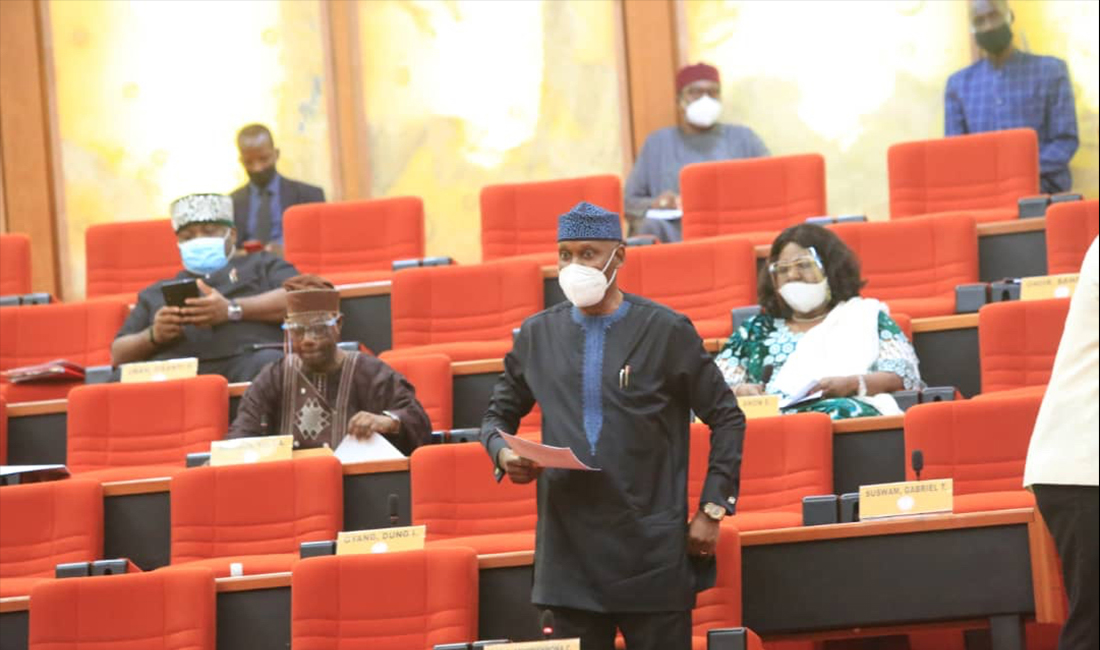

![Panic as thugs storm Ibadan senator’s residence, cart away 300 motorcycles[VIDEO]](https://thenewsguru.ng/wp-content/uploads/2020/10/IBDDDDD.png)
